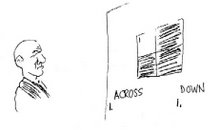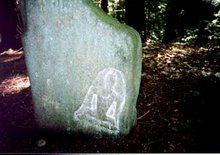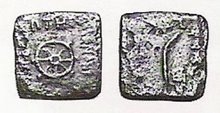Nowhere is it more obvious that Paul is quoting the Buddha than in 2 Corinthians 5:1.
1. For we know that if our earthly house of this tabernacle were dissolved, we have a... house not made with hands, eternal in (nirbana) the heavens.
4. For we that are in this tabernacle do groan (suffer), being burdened (with suffering). source
Siddhartha Gautama Shakyamuni spoke:
"Looking for the tabernacle maker,
through the many cycles of birth.
And in not finding him,
painful are the cycles of birth.
No more, maker of tabernacles,
for you [Mara] have been seen.
You shall make my tabernacle no more.
The rafters are broken,
the ridge-pole is sundered,
the mind approaches the Eternal.
I understand peace in the extinction of desire."
— Dhammapada - verses 153 & 154
round-about source here
Saturday, September 19, 2009
Monday, February 16, 2009
Four Truths for Nobles
"Cattari-ariya-saccani" is "Four Truths for Nobles."
1st: Pali - dukkha, rebirth is caused by samsara - wandering.
The forms of suffering are birth, aging, sickness, and death.
2nd: Pali - samudaya, mistranslated as "craving" is actually wandering, lost, or ignorance.
3rd: Pali: nirodha, cessation of suffering or the vulgar nirvana.
4th: Pali: magga, "the path" to the cessation (nirodha) of rebirth (dukkha).
Be aware that "suffering" (Pali dukkha) also means impermanence (of cessation) or imperfection (of wisdom). Without cessation, one is born again into this place of suffering. Without wisdom (wallowing in ignorance) one is born again into this place of suffering. The Buddhist equivalent of Hell, this place of shadow and light is the realm of suffering.
These "Four Noble Truths" are, in fact, The Four Truths for Noble People (of Wisdom). Implied is an extensive education followed by the development of wisdom (through meditation). Sorry about that.
1st: Pali - dukkha, rebirth is caused by samsara - wandering.
The forms of suffering are birth, aging, sickness, and death.
2nd: Pali - samudaya, mistranslated as "craving" is actually wandering, lost, or ignorance.
3rd: Pali: nirodha, cessation of suffering or the vulgar nirvana.
4th: Pali: magga, "the path" to the cessation (nirodha) of rebirth (dukkha).
Be aware that "suffering" (Pali dukkha) also means impermanence (of cessation) or imperfection (of wisdom). Without cessation, one is born again into this place of suffering. Without wisdom (wallowing in ignorance) one is born again into this place of suffering. The Buddhist equivalent of Hell, this place of shadow and light is the realm of suffering.
These "Four Noble Truths" are, in fact, The Four Truths for Noble People (of Wisdom). Implied is an extensive education followed by the development of wisdom (through meditation). Sorry about that.
Subscribe to:
Comments (Atom)







